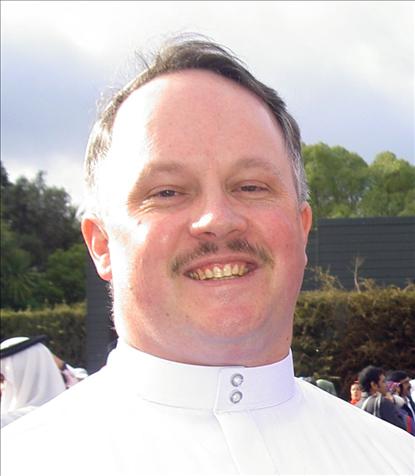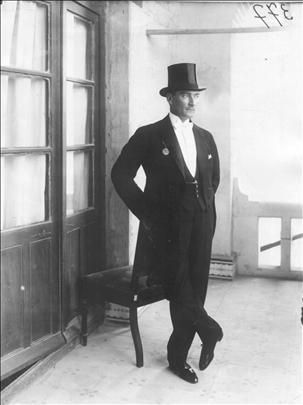Anzac Day (April 25) reminds us of the Gallipoli Campaign in 1915.

New Zealand soldiers fought bravely at Chunuk Bair alongside troops from Britain, Australia and regiments of the British Indian army (including Sikhs and Gurkhas).
The Ottoman-Turkish defence of Gallipoli was coordinated by Otto Liman von Sanders, a German General and his small cadre of officers from Berlin and Istanbul.
The real victor of Gallipoli in the long term however was 34-year-old Lieutenant Colonel Mustafa Kemal.
A career officer, he joined the Ottoman army as a cadet in 1893 when he was 12 years old. His grandfather was a Holy Quran teacher in Salonica.
After training and graduation, Mr Kemal undertook his military posting with the Turkish Army in Syria.
In 1912, following the Italian invasion and occupation of Libya, he and a small coterie of likeminded officers with a smattering of Arabic language skills, secretly crossed the Mediterranean to join the Arab Resistance fighters.
Diplomatically and legally, Ottoman-Turkey was obliged to accept the Italian aggression. Therefore, Mr Kemal was “technically on leave.”
Voluntary Warrior
Inside Libya, he was labelled a voluntary ‘Mujaheed’ (Warrior). The practical combat experience was useful and served him well.
In 1914, he was posted to Gallipoli to prepare defenses. After the campaign, he was awarded the title of ‘Pasha’ in August 1915. (Scholars derive the word Pasha etymologically from the archaic Turkic words ‘Bas Aga,’ or Senior Chieftain).
For four years, Mr Kemal led the Turkish army against various invading armies and navies. After defeating Greek soldiers at Sarkarya in Western Anatolia, the Turkish Grand National Assembly awarded him the title of ‘Gazi’ or Holy Warrior in September 1921.
He was popularly known as the ‘Halaskar Gazi’ (Saviour Warrior).
By the 1920s, the dynastic-Caliphate of the Ottoman regime relied on a peculiar mixture of ‘Sharia Urf’ (customary law) and Firman (Royal Decrees of the Sultan), and an even more peculiar mixture of languages, races and religions.
In the crucible of war, it had proved itself effete, ramshackle and entirely dysfunctional.
In a speech to the Grand National Assembly on March 1, 1924 Mr Kemal stated unequivocally that Islam would be elevated if ceased to be a political instrument, as was the case in the past.
Two days later, the Caliphate was formally abolished and Turkey was declared a secular Republic. He served as the first President until his death a decade later.
Although the State and Church were separated, a government office called the ‘Directorate of Religious Affairs’ was created and new translations of the Holy Quran were organised and disseminated.
Islamic teacher

In 1932, a Turkish rendering of the Holy Quran was broadcast live.
Mr Kemal was weary of Ulema and the Sufi Tariqat (he banned the Whirling Dervishes in 1925). However, he expressed repeatedly that the Holy Quran itself should be a guide to religion.
In 1923, he entered a religious class at the Darul Hilafat Al Aliya Madrasah, in the conservative town of Konya, teaching students the famous Quranic Ayat, “Allah commands you to render trusts to whom they are due and when you judge between people to judge with justice. Excellent is that which Allah instructs you. Indeed, Allah is ever Hearing and Seeing” (Surat An-Nisa 58).
“I regard this verse as the sole proof of our success,” Mr Kemal said.
In 1938, he fell ill inside the Dolmabahce palace of the former Ottoman Sultans.
His last words were “Alaikum Assalam’ spoken to his doctor in reply to the traditional Muslim greeting. He fell into a coma and died on November 10, 1938.
His friend and commander of the 1st army in Istanbul, General Fahrudeen Altay, ensured that he was given the ‘Salat Al Janazah’ (Islamic funeral prayer).
Mr Kemal is often criticised for his efforts to reform the Muslim society, banning the fez in 1925 for example, but some of his observations and ideals remain valid even today.
Was he really a villain taking a hardline with Islam or was he the pragmatic philosopher-prince of Plato and Niccolo Machiavelli?
Perhaps the last word is best left with his biographer Andrew Mango, who said, The Pasha earned his place in history by directing the successful resistance of the Muslim inhabitants of Anatolia against the occupation and attempted partition of their country.”
Hajji Abdullah Drury, author of ‘Islam in New Zealand,’ is a former social secretary of the Muslim Association of Canterbury. He lives in Hamilton.
Email: abdullah@xtra.co.nz
He wishes to acknowledge the works of Andrew Mango Ataturk (The Biography of the Founder of Modern Turkey). Read related story under Viewlink.
Photo : Lt Col Mustafa Kemal






